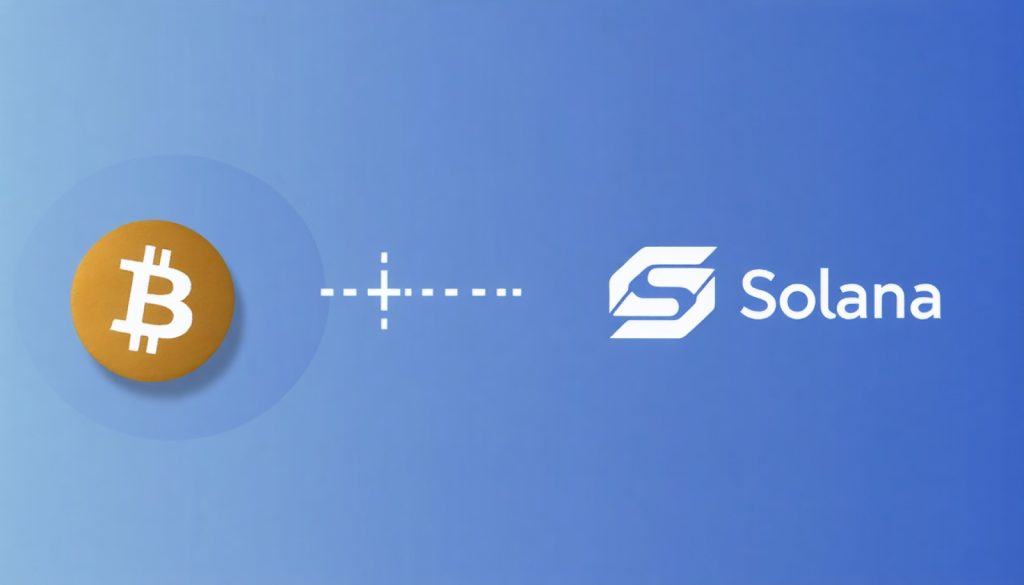
- Kristin Smith, former CEO of the Blockchain Association, transitions to lead the newly formed Solana Policy Institute as president.
- Miller Whitehouse-Levine, the current CEO, drives the institute’s focus on decentralized networks, especially Solana, to advance the digital economy.
- The Solana Policy Institute aims to shape the future of finance through clear policies supporting digital innovation.
- Smith’s tenure at the Blockchain Association saw pivotal shifts in crypto lobbying amid a volatile market and increased political engagement.
- The political landscape for digital assets is becoming more stable, with allies now advocating for integrated digital asset guidelines.
- Decentralized technologies are emerging from the fringes to form the foundation of a new economic paradigm.
Washington’s buzzing with change as Kristin Smith, a stalwart in the world of crypto lobbying, ventures into new terrain. Stepping down after nearly seven transformative years as the chief executive of the Blockchain Association, Smith is set to pioneer the Solana Policy Institute as its president. This strategic move signals a fresh chapter in the evolving narrative of digital currencies.
Envision an unstoppable force in Miller Whitehouse-Levine, who has freshly minted the Solana Policy Institute and positioned himself as CEO. His transition was swift yet significant; he stepped down from his prior role at the DeFi Education Fund to helm this ambitious enterprise. Though details remain scarce about their funding sources, the institute is vocal about its vision of decentralized networks, particularly Solana, as the cornerstone of tomorrow’s digital economy. This sentiment isn’t just another goal; it’s a rallying cry in the ongoing quest for financial innovation reshaping our very fabric of commerce.
Under Smith’s leadership, the Blockchain Association played a pivotal role in shaping the cryptocurrency industry’s lobbying efforts. Her tenure coincided with a tumultuous yet thrilling era marked by the crypto market’s rollercoaster dynamics and burgeoning political interest. Recently, the ground beneath the industry has grown steadily more stable. The political arena, which was once a minefield for crypto advocacy, is now occupied by allies eager to embed digital asset guidelines within legislative frameworks.
Smith’s departure inevitably ushers in a new era for the Blockchain Association, which now finds itself searching for a successor capable of walking the fine line between regulation and innovation. Meanwhile, Whitehouse-Levine’s strategy underscores the potency of clarity and strategic alignment in propelling digital economies. Policies, he contends, should be about providing innovators the clear pathways needed to forge a seamless, Internet-based global economy.
As the narrative unfolds, the broader message crystallizes: decentralized technologies are no longer the outliers of the financial world; they are increasingly becoming the bedrock of a new economic paradigm. Smith and Whitehouse-Levine’s endeavors symbolize this transition, offering a glimpse into a future where innovation is tethered not just to ideas but also to enduring policy frameworks. The digital frontier is vast and inviting, and as these visionary leaders chart new courses, the beacon of progress shines ever brighter.
Cryptocurrency’s New Era: Inside the Minds Behind Solana’s Latest Initiative
Insights into the Transition of Key Figures in Crypto Lobbying
The landscape of cryptocurrency is experiencing a seismic shift with Kristin Smith’s departure from the Blockchain Association and her subsequent role in establishing the Solana Policy Institute. This move signifies a broader trend in the digital currency arena, where key players are forging new paths to align with emerging technologies and policy needs.
Understanding the Solana Policy Institute’s Mission
The newly formed Solana Policy Institute, led by CEO Miller Whitehouse-Levine, signals a commitment to advancing decentralized networks. The institute aims to position Solana blockchain technology at the forefront of a rapidly evolving digital economy. With its promise of speed and scalability, Solana is looking to push the boundaries of blockchain application beyond conventional territories.
Industry Trends and Market Forecasts
The shift from the Blockchain Association to the Solana Policy Institute reflects an industry-wide momentum towards decentralized finance (DeFi). DeFi, an integral component of blockchain innovation, is transforming traditional financial mechanisms by eliminating intermediaries, thus paving the way for more inclusive financial systems.
Market forecasts suggest that the global blockchain market size is expected to reach $69.04 billion by 2027, growing at a CAGR of 56.1% from 2020 to 2027 (source: Fortune Business Insights). Solana, with its burgeoning ecosystem, perfectly positions itself to capture a significant share of this market by providing unmatched transactional speed and cost efficiency compared to its competitors.
Pros and Cons of Solana’s Approach
Pros:
– Scalability: Solana can handle thousands of transactions per second, making it an ideal platform for a growing digital economy.
– Cost-Effectiveness: Lower transaction fees relative to other blockchains like Ethereum.
– Innovation Support: The institute is poised to influence policy, ensuring that innovators have the pathways needed for development.
Cons:
– Centralization Concerns: Critiques often cite the risk of centralization due to a more concentrated node distribution compared to other blockchains.
– Regulatory Scrutiny: As with many emerging technologies, regulatory challenges remain a concern.
Actionable Recommendations for Innovators
1. Engage with Policy Discussions: Innovators should participate in dialogues facilitated by both the Blockchain Association and the Solana Policy Institute to shape favorable guidelines.
2. Explore DeFi Solutions: Entrepreneurs can leverage Solana’s infrastructure to develop scalable financial solutions, reducing costs and increasing efficiency.
3. Stay Informed: Regularly check credible sources and updates from institutes like the Solana Policy Institute for insights and regulatory changes affecting blockchain technology.
Quick Tips
– Adapt to Change: Keep abreast of policy changes and technological developments to maintain a competitive edge.
– Focus on Security: Prioritize security measures as blockchain technology continues to expand and attract more significant financial activities.
With the dawn of a new era in cryptocurrency policy and technology, stakeholders must embrace innovation while navigating regulatory landscapes. To stay updated on the latest developments in blockchain, visit Blockchain Association and Solana.



